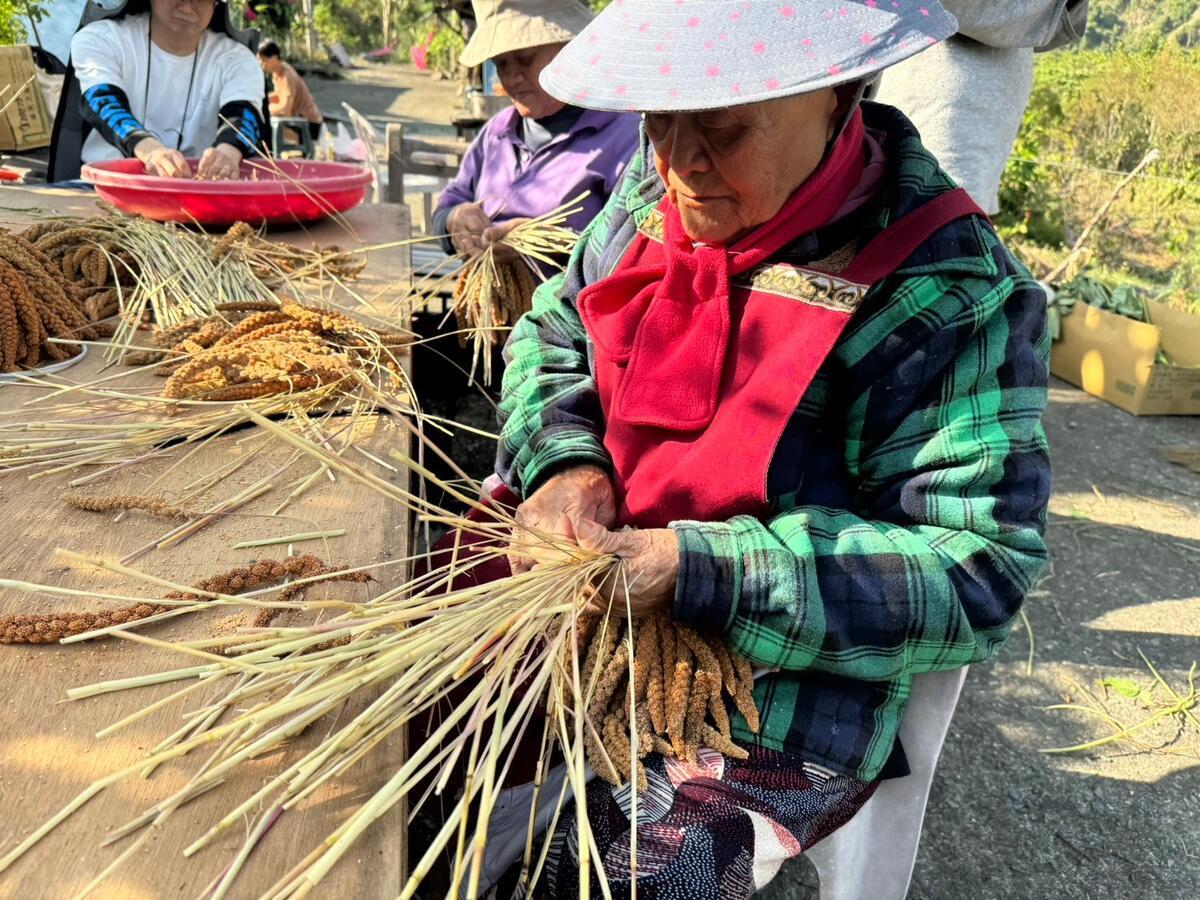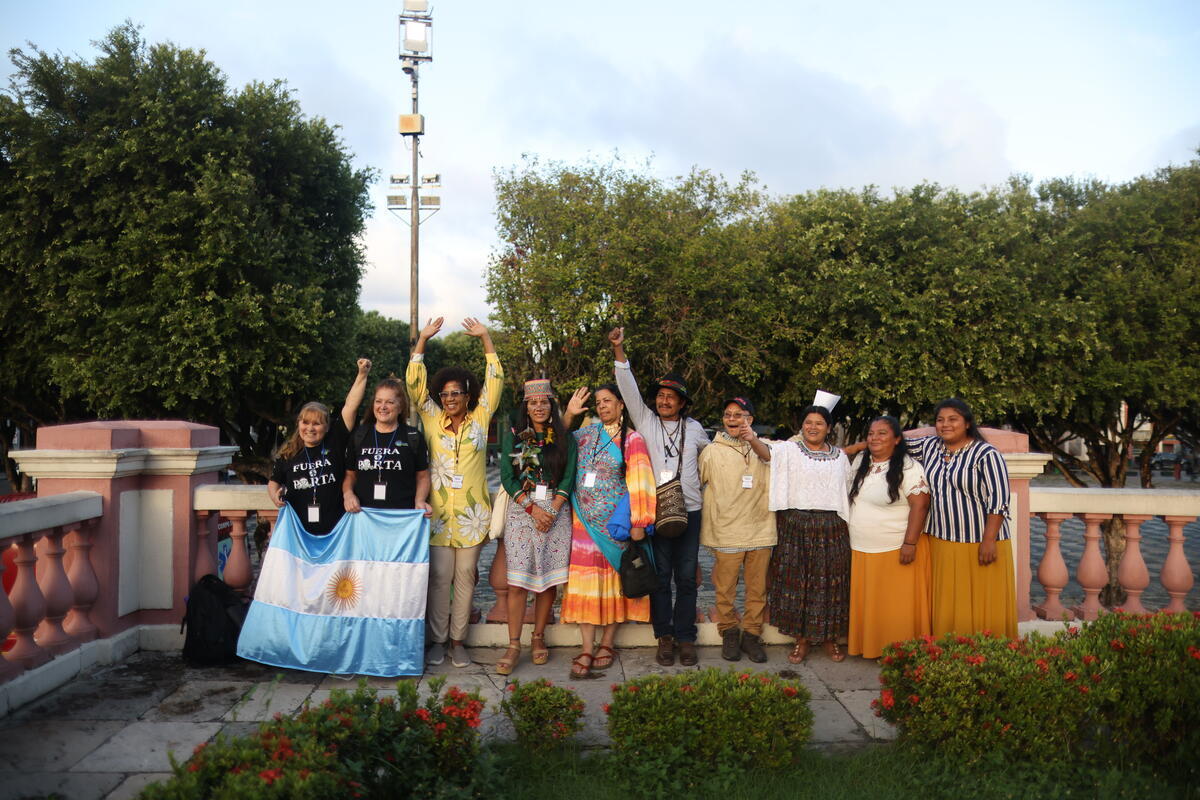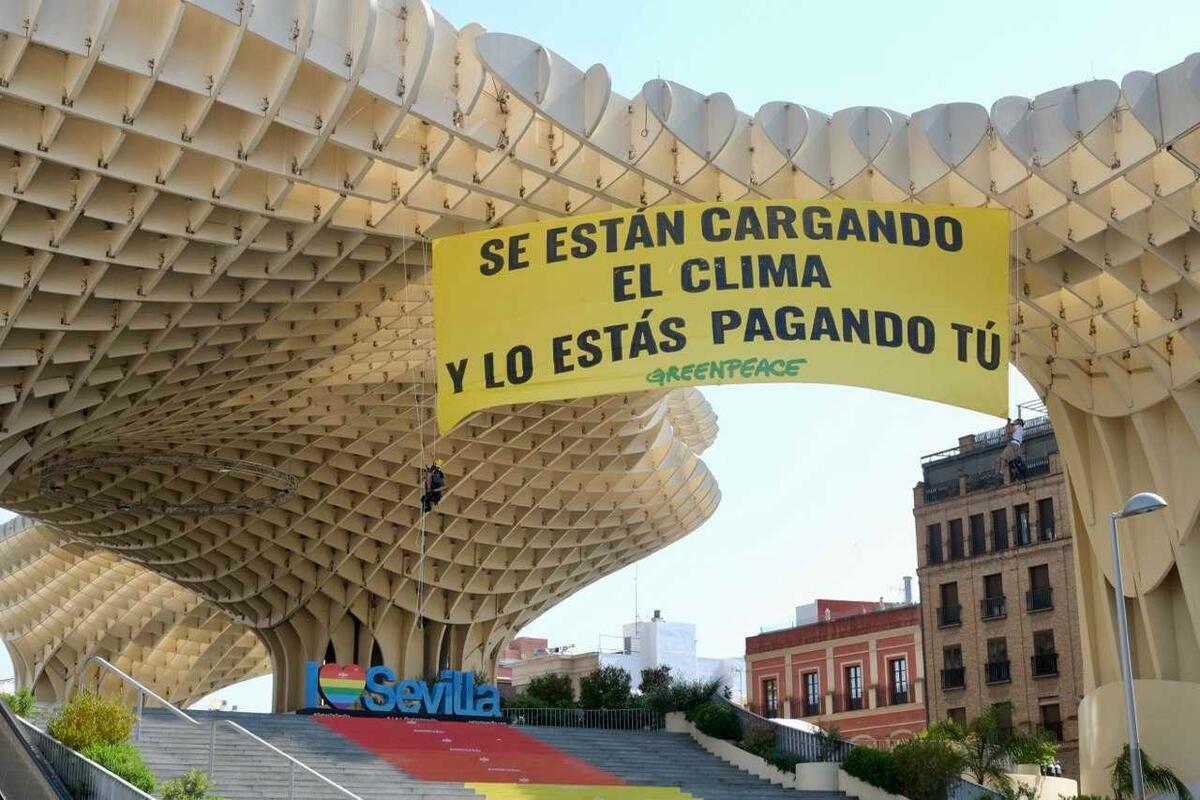Greenpeace’s global project, Roots, carried out a collective artistic composition project in Chile against the privatisation of water together with the local community.
Being told that in Chile, water is not guaranteed as a human right for people at the constitutional level, may sound alarming, very distant and could make you feel alienated from (depending on where in the world you are). Knowing that Chile has the greatest water crisis in the entire Western Hemisphere and 76% of its territory is affected by lack of water is something that as part of the climate movement we cannot ignore; it is urgent to support the communities that ask for its deprivatisation. The problem is that the water crisis is more than just drought, it is a problem of water distribution.
“On the World Day of Drought and Desertification, in a context in which a large part of the country’s territory is becoming desertified due to how the land is used – intensive activities such as agribusiness and forestry – we must relate differently to water, guaranteeing it as a right for people and taking care of ecosystem balances. Protecting water ecosystems, native forests, wetlands, among others, is caring for water and curbing desertification”, a Greenpeace Chile coordinator, Estefanía González emphasises.
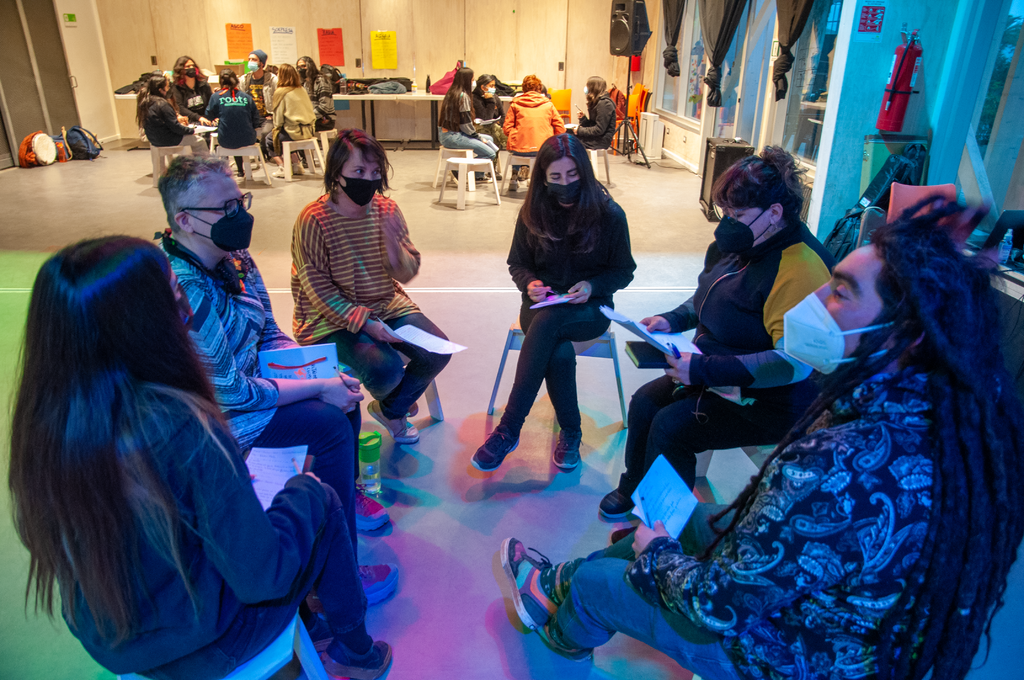
This is why, as part of the World Day to Combat Desertification and Drought, from the Greenpeace Roots project, together with MODATIMA Women, belonging to the central community of La Ligua, (one of the most affected areas of the country in terms of water crisis), and the Sibelius Music Academy of Finland, we brought Canto del Agua to life. A workshop, a collective cry, which set out to give life to a writing collaboration, resulting in a song. Its objective? To reflect the serious situation that exists throughout the region and amplify the voices of the movement for the de-privatisation of water.
After arriving in Chile, the Finnish delegation and the Roots team began a workshop together with people from the community; musicians, activists, defenders of water who day by day live firsthand the consequences of the water crisis. The base of all the meetings was the CECREA, a space whose facilities promote “creative citizenship”, the development of experiences that promote creativity from the promotion and exercise of the rights of boys, girls and young people.
On Monday the 13th we were ready to start! Together with the participants, one of the main components of the project was to work along the lines of their experiences, honor the local culture and be able to combine it into a powerful message that added their support to this fight.

But how do we count the drought? How do we learn to listen to the earth, to the rivers that are no longer there? In the first instance, the activities began by collecting sounds from the territory with special equipment for this (here the experience of the Sibelius Academy was fundamental), going out to explore and observe the absence of water, searching the dry land and the trees without leaves, a collective and creative composition with the help of facilitators. Active listening to the experiences of the participants, rhythmic improvisation and group exercises with local musicians in conjunction with the Academy delegation were also part of the assembly strategy. The entire process was developed in instances of cooperation and co-creation with the community, trying to transmit through music the sound of the looting that Chile has suffered for decades. We had a big job ahead of us!
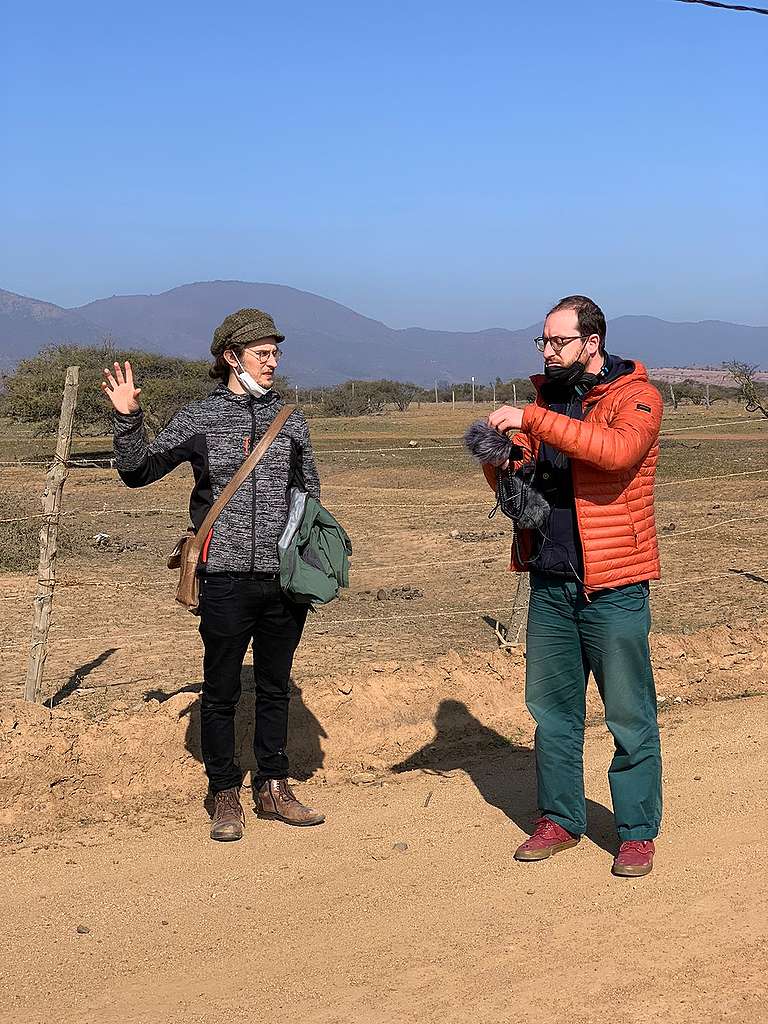
The commitment to the recovery of water is seen in all bodies and identities; as in Martina (17) and Matilda (11) Farías, two sisters who participated in the workshop. “I care a lot about the theme of music, it is one of my passions, what I like the most, and I find that this idea on the part of Greenpeace about music and transmitting this important message that is the theme of water through it is something very cool”. “Music reaches everyone, we all like it, we all have that in common” Martina shared.
We also had the perspective of Patricio Cristobal Figueroa Quiroga, from the province of Petorca, who said that he joined because he is a fisherman and has been making music for many years. “The water is part of me; salt water, fresh water, it’s the same on the planet, the waters come together to fulfill an objective that is to clean the environment, make the rivers grow again, and that motivates me so that my son believes that one day the river will to flow back into the sea.”
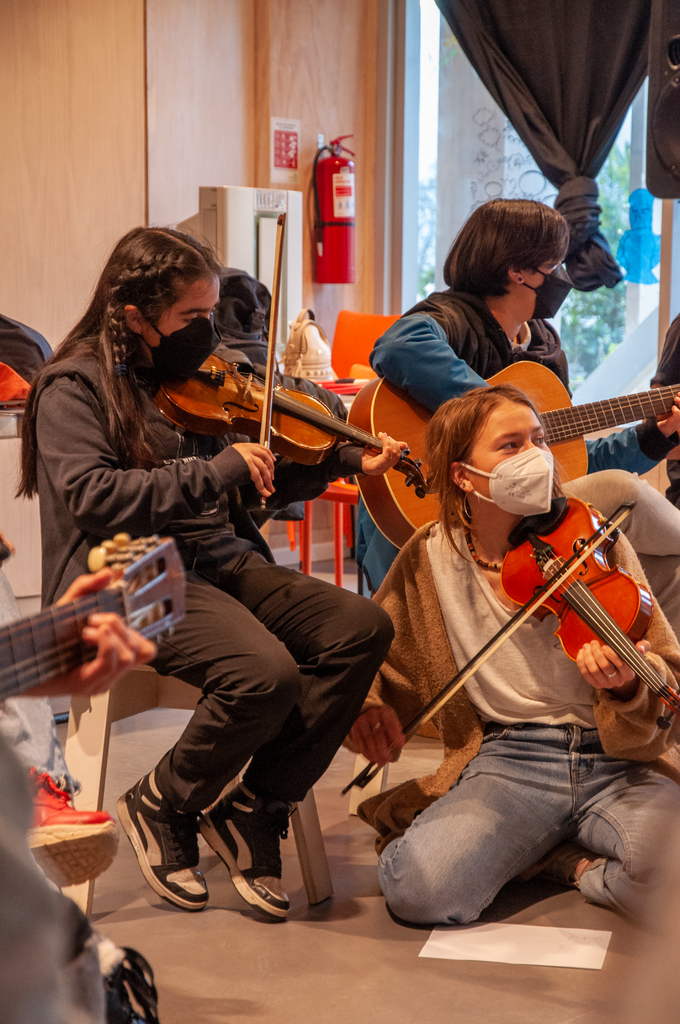
When it comes to saying that the inhabitants of Chile live with the privatisation of such an essential right, it leads us to denounce the consequences that arise in the communities, organised for years to fight the private sector in their struggle to stop looting in their territories. Its echo gave a deeper meaning to the project than we could have thought at a moment and filled us with responsibility to take it to the best possible platform.
“This drought, this looting of water has destroyed families. Family members have committed suicide, the families seperated when members have had to emigrate to other territories in search of labor sources, because here the people only knew how to work the land. And when they dried up the land, when they devastated the territory, they destroyed the families, the ties” shared Carolina Ruiz, vocalist of Los Sagrados, a local band that emerged after the social movement of 2019.
“This experience that we are living here unites souls and experience around how to capture this pain that we feel collectively due to the plundering of water, theft and the devastation of our territory. We are musicians who have been resisting in this space for a long time. “The resistance is strong, it is felt everywhere; it is felt in our hands, in our throats, in our body, everywhere”. “This space that we are experiencing, this moment, is very important and representative.”
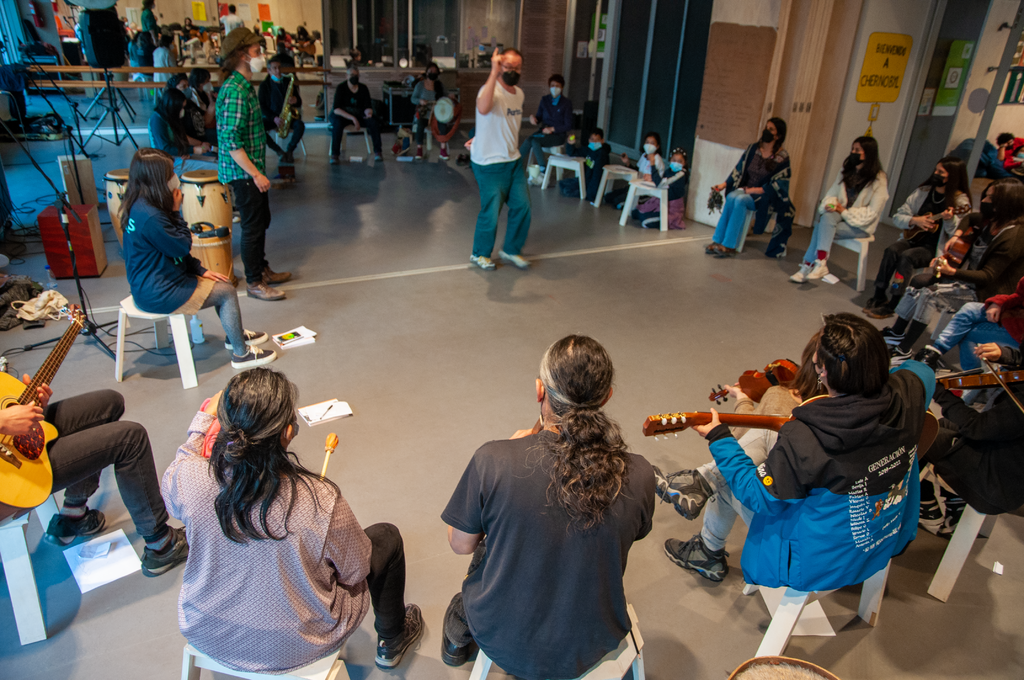
We came to the end of this workshop with the hope that the work, together with the assemblies in the territories, local organizations, musicians and artists from various branches allow this type of action to value the importance of diversity, art in activism and collaboration between different cultures and countries.
“This program that we are doing to share our music and inspiration with people from La Ligua is very important, because it gives my work and my tools the opportunity to combine them with reality and a struggle that is very real here,” declares Jao Matos Lopes, percussionist and student at Sibelius Academy. “Being here makes me feel very humble, being able to share so many stories of the people, and being able to transform them in some way into struggle and hope.”
Towards the final stretch and as an objective to share what has been achieved these days, on Friday 17th (World Day to Combat Desertification and Drought) the song will be presented in a final concert where workshop musicians and local artists will play, such as: Loom of Dreams, La Ligua Scenic Art, Macarena Leivat, Los Sagrados, Loica, F. Ledezma and J. Ibacache at the La Ligua Museum.
Then, on Saturday the 18th, the song will be recorded to later promote it on digital platforms, and that the community itself (and we hope, many more people) can use it, hopefully, as a fight anthem to the song that we see written throughout La Ligua : “It’s not drought, it’s looting.”
– Greetings from Chile, Rosario Coll, part of the Roots team.
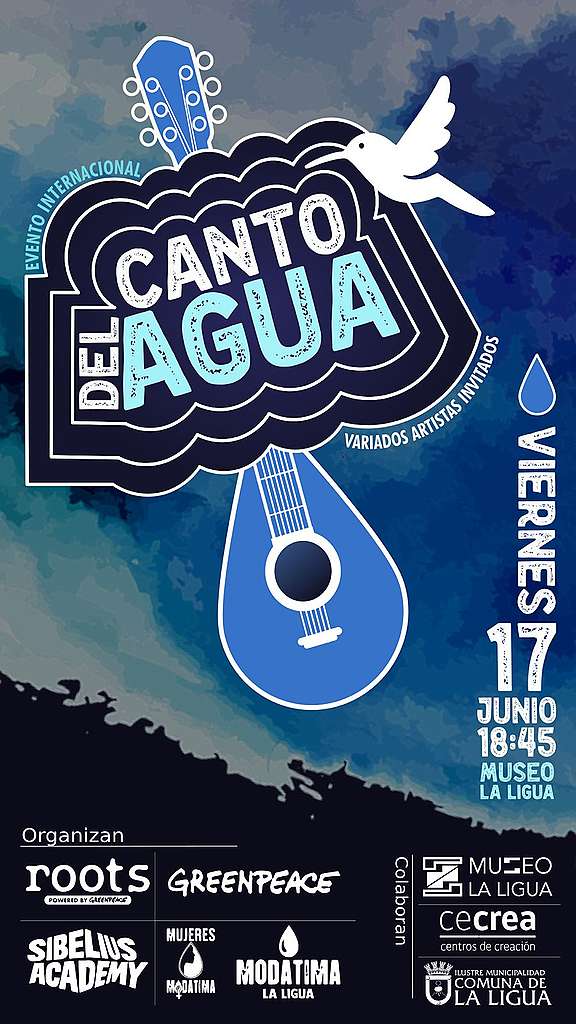
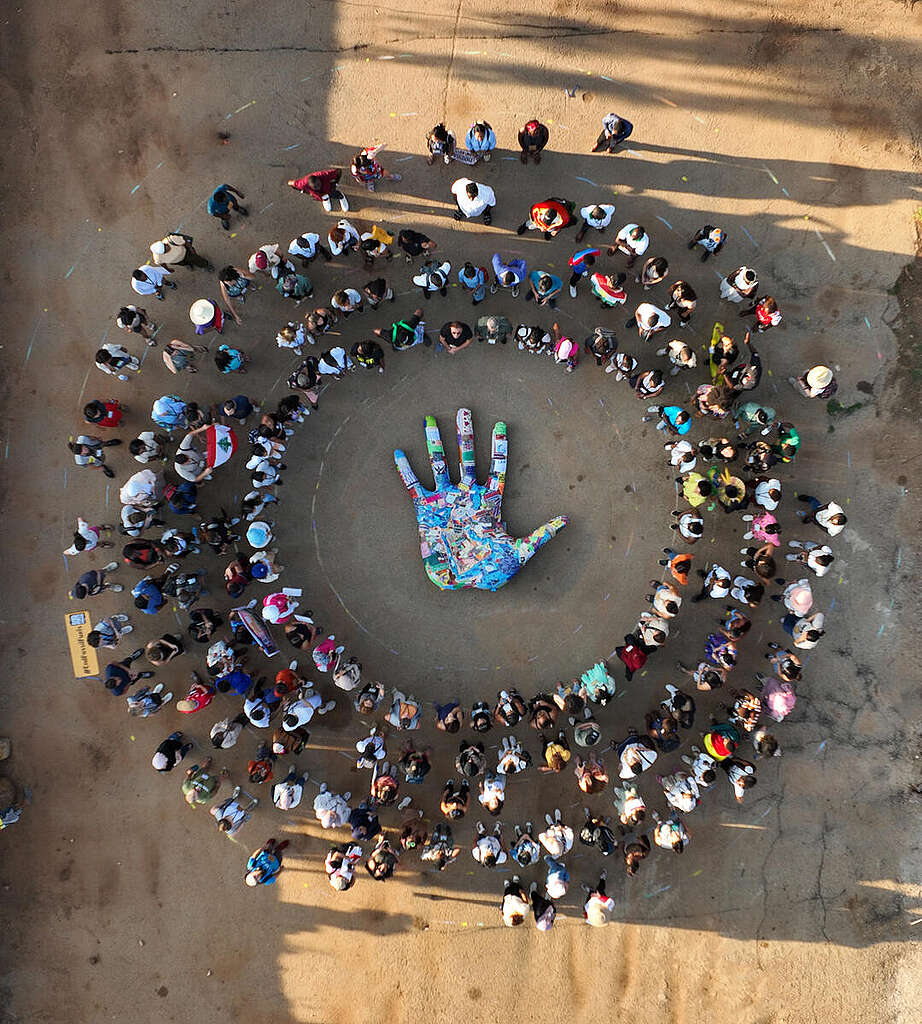
Connect with activists from around the world and learn how you can organise to create meaningful change in your community.
Take actionRosario Coll is the Movement & Media Organiser with the Roots Project at Greenpeace Andino

